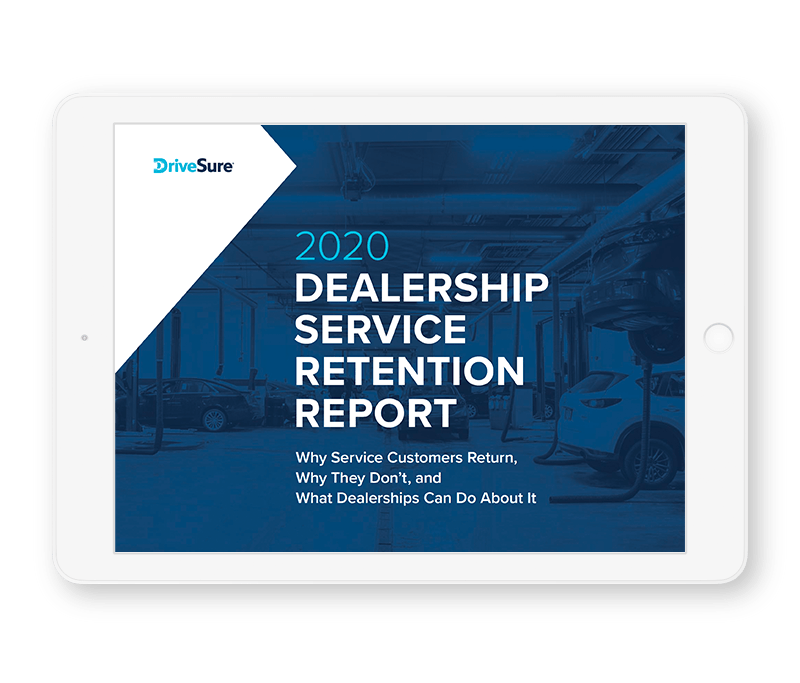**Please note that the information in this article is for informational purposes only; it does not and is not intended to constitute legal advice. For legal advice relating to this information, please contact a licensed attorney.**
Most dealerships today operate honestly, and wrongdoing is much rarer than it used to be. With that in mind, you would think dealerships are fairly safe from any legal trouble.
However, from service departments to F&I, dealerships must follow a myriad of regulations to stay within the law, and even honest dealers make mistakes. Even without ill intent, a law broken is still a law broken, and costly legal action can follow. If a customer or employee files a formal complaint, it doesn’t make much difference to the government that the law was only broken accidentally.
To make matters worse, there are of course still people with unethical intentions. Sometimes it’s a single employee trying to cut corners or get ahead, and sometimes this behavior grows like a cancer in your company, where multiple people are working together. They’ll lie to customers, telling them optional purchases are mandatory, or add in hidden costs for products the customer didn’t want.
In the service lane, issues often stem from a lack of designated safety responsibilities or neglecting to set up a formalized safety system. Employees are often tempted to ignore safety violations to save time, and these can cause major legal issues if left untreated. (This is an unnecessary step for profitability, which can just as easily be achieved by expanding service lane capacity or increasing its efficiency)
To steer clear of these issues, dealers need to learn the most common mistakes to avoid, understand their own products better, and practice a level of transparency that might seem counterintuitive to some.
Let’s go over some of the most common areas to keep an eye on, and some steps you can take to prevent investigations and lawsuits from happening.
The 2020 Dealership Service Retention Report
Insights from Nearly 2,000 Dealership Customers
Where do legal issues happen most at dealerships?
Financial Protections for Customers
Most dealership-related regulations today focus on F&I, in part because there are so many more opportunities for scams to happen there. These issues are usually handled by your state’s Attorney General (AG), who has a great deal of authority to issue penalties for deceptive or unfair practices.
The second area dealerships get into trouble, usually with the Federal Trade Commission (FTC), is for misleading advertising practices.
Some common legal issues include:
- Discriminatory interest rate quotes
- Payment packing (such as adding F&I products or services into a monthly vehicle payment, when the customer didn’t ask for them)
- Engaging in unlicensed car sales
- Selling unroadworthy vehicles or “lemons”
- Making false statements about products, services, or payments to a customer (such as claiming it’s mandatory to buy gap insurance)
- Running deceptive advertising
- Inflating a customer’s income on a credit application (legal action here can even target managers who didn’t have direct involvement)
Employee Health & Safety
Separately, there are protections that expand to employees, such as by the Occupational Safety and Health Admin (OSHA). OSHA investigations usually happen when someone reports an imminent danger, or if a serious accident occurs on your premises. Most OSHA violations are fairly easy to fix proactively, but are often overlooked.
When OSHA comes to investigate, they don’t give you prior notice, so it’s especially important to stay compliant, even if you consider your workplace safe.
Some of the most common OSHA violations Service Directors should be aware of include:
- Lack of slip and fall precautions (from lack of appropriate signage and equipment to unaddressed oil slicks on the shop floor)
- A service bay hoist that doesn’t meet safety standards
- Insufficient ventilation in the paint shop (or anywhere with gasses, vapors, smoke, aerosols, etc.)
- Improper forklift use (such as not adhering to rules on maximum loads, vehicle speed, load balancing, operator training)
- Improper installation or labeling of electrical wires (such as a lack of warnings)
- Unlabeled or improperly labeled chemical containers (acids, disinfectants, glues, paints, etc.)
- Lack of safety guards on machinery
- Fire code violations (these can extend to other areas of your dealership too, such as file boxes stacked dangerously high, or blocked exits)
How to Keep Your Dealership Out of Legal Trouble
While there’s plenty you can do to reduce your risk of encountering legal trouble with the AG, FTC, or OSHA, it can mostly be broken down into 3 central areas: transparency, education, and proactively putting systems in place.
Transparency (Externally and Internally)
When it comes to customer protections, the best way to avoid trouble with the law is to be as transparent as possible. As a rule of thumb, anything that misleads customers has the potential to get you into serious legal trouble.
This requires you to honestly present terms and conditions of any transaction, for starters. If a customer might encounter any surprises that could lead to a complaint, that surprise is worth addressing.
On the admin side, transparency requires you to keep your deal jackets updated and accurate, showing any documentation and signoffs. If investigators arrive from the AG’s office, this will be the first thing they look at, and doing these correctly can be what saves you.
Where the FTC is concerned, deceptive dealer advertising is low-hanging fruit. If they accuse you of it, you may not even have the funds on hand to mount a solid defense. Any misleading claims in your advertising is highly risky, no matter what your competitors are doing.
Education (About Your Products, and About the Law)
Sometimes when everyone has the best intentions, employee ignorance still causes issues. We’re all human after all, but oftentimes this ignorance is addressable.
For instance, less than 10% of F&I employees who present a contract to customers have actually read the contract. How are you supposed to accurately explain a contract if you don’t know what’s in it?
Learning proper compliance is essential. It may seem like a chore to review your products and contracts, or the relevant regulations in the industry, but it’s a much better use of time and resources to proactively learn how to be compliant now rather than deal with a lawsuit that might negatively impact your business later on.
F&I managers in particular need to educate themselves about the products they’re offering, because again, ignorance of the law doesn’t grant you immunity from it. For instance, legally you must itemize a customer’s monthly payments for their car, separate from any extras. Failure to do so can have serious consequences.
In the service center, the same rule applies. Learn about the equipment your team is using, and the associated regulations with who can use it, how to use it, and the safety precautions you need to take.
Proactively Setting Up Systems to Stay Compliant
Sometimes, in the event of a violation, investigators are more likely to forgive you (or reduce penalties) if they can tell you’re making a genuine effort to stay compliant.
An example of this might be setting up a system to handle customer complaints. This way, you can resolve problems before they get more serious, such as leading to the involvement of law enforcement. Mistakes happen, but they’re more likely to become real problems if negligence is to blame.
When it comes to workplace safety, the same principle applies.
Many dealerships establish a safety committee to designate who is responsible for monitoring potential violations. Ultimately, OSHA wants to see commitment to safety. When you can present them with training records, formalized written programs, and evidence of an established culture of safety, a one-off mistake becomes less of a problem. The absence of these practices is a big red flag for investigators.
Safety training programs need to stay up to date, and include any new hires along the way. An oversight here increases the risk of an accidental violation, such as when you fail to train a new employee on correct safety procedures or forget to update your training programs regularly.
Transparency is More Profitable Than You Might Expect
Practicing fair and full disclosure is the best way to proceed. Failing to do so can not only cause expensive legal issues, but the bad experience also ruins customer trust in your company. It will get publicized, and it will be embarrassing.
While some shady individuals might chase short-term gains in F&I, an honest and transparent culture leads to greater profits over the long term. This can seem counterintuitive, because many people falsely believe that compliance gets in the way of profitability.
However, consider for a moment the reputation of dealerships among consumers. People are distrustful, and have learned to expect some level of deceit. But when you stay compliant with laws, over-disclose costs, and avoid pushing products a customer doesn’t need, you get a massive credibility boost. People realize they can trust you, and as any seller can attest, a customer who trusts you is more likely to buy from you — whether it’s a new vehicle or an optional F&I product.
The 2020 Dealership Service Retention Report
INSIGHTS FROM NEARLY 2,000 DEALERSHIP CUSTOMERS
Learn why customers choose to return to their dealership for service and why they don’t. Plus, we reveal your biggest opportunities for encouraging customer loyalty.


